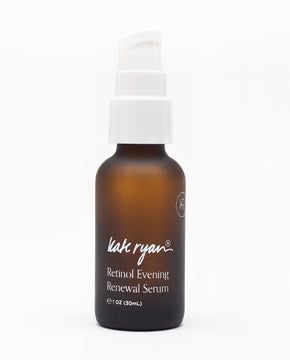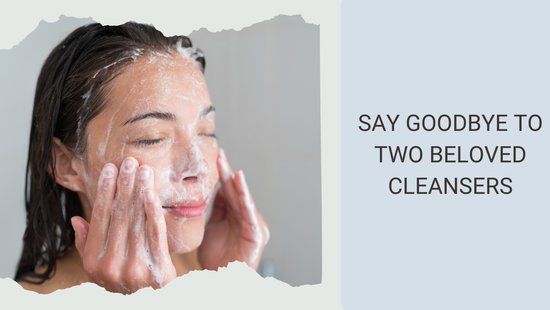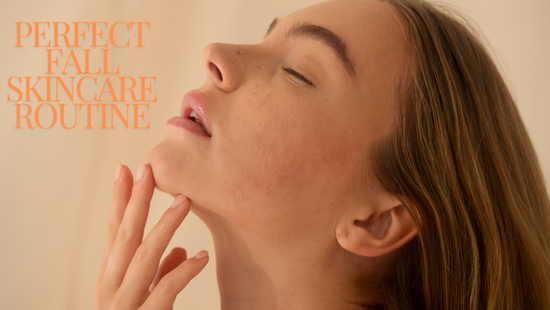Retinol is part of many skin success stories, generally about blemishes, anti-aging, or both. Many people swear by retinol as an integral part of their skincare routine. Some may also be scared of retinol due to instances like a bad experience with it.
The retinoid your dermatologist prescribed when you were 15 years old did not work for your skin. But, a serum or cream that contains retinol and other skincare actives may be just what your skin needs!
There’s a reason why retinol is still around - and why it’s an ingredient in many skincare products. So, let’s discuss the benefits of retinol, how you can add it to your skincare routine, and how it works while you sleep.
What Are The Benefits of Using Retinol For Your Skin?
Retinol is known for two main benefits: anti-aging and blemish treatment.
The results of scientific studies on retinol are impressive. That’s why it is usually the active dermatologists recommend most often for anti-aging and treating blemishes.
Here are the ways retinol can improve and change your skin:
- Increases cell production and turnover
- Boosts collagen production
- Reduces the appearance of fine lines and wrinkles
- Improves skin elasticity
- Minimizes scarring and stretch marks
- Prevents clogged pores and breakouts
- Exfoliates
- Decreases swelling and inflammation
- Restores lost volume for plumper skin
- Lightens hyperpigmentation
- Smoothes uneven skin tone and texture
- Protects the skin from environmental damage
Applying retinol in the evening is recommended to maximize benefits. When you sleep, your body (skin included) is in repair mode. Your brain enacts repair processes for your body, so your skin is working to heal while you slumber. Retinol gently renews the skin’s surface each night - so you may wake up and visibly see some of the benefits listed above.
Are There Disadvantages of Using Retinol?
If you have sensitive skin, you may not be able to tolerate retinol. Another disadvantage (that you can easily work around) is that retinol increases your skin’s sensitivity to sunlight. If you are using a product that contains retinol during the day, make sure to apply sunscreen. Or, opt to use the product at night only, and be sure to wash it off in the morning!
These are the most common negative side effects of retinol:
- Dry, irritated skin
- Itching or burning
- Redness, peeling, flaky, or scaly skin
- Sunburn
Generally, these side effects will disappear over time as your skin gets used to the retinol.
What is The Difference Between Retinol and Retinoid?
Retinol and retinoids are both forms of Vitamin A used on the skin. The difference between retinol and retinoid is its strength. Retinol is available in lower concentrations, so it is mild enough to be sold in serums, creams, and lotions over the counter. Products that contain retinol are often combined with other ingredients, such as hyaluronic acid, ferulic acid, and B vitamins.
Retinoids are generally available in higher concentrations as a prescription.
Tretinoin is a commonly prescribed retinoid used to treat acne and photoaging (premature aging from sun exposure).
Adapalene - better known as Differin - is the one exception of an over-the-counter retinoid used to treat acne.
Since retinoids have a higher concentration, you may see changes to your skin faster than if you use a retinol.
How to Add Retinol to Your Skincare Routine
Since retinol is not for everyone, conduct a “patch test” where you apply a small amount of the product to a small skin area. The inside of your arm is an ideal place for a patch test. If you experience redness or itchiness in the area of the patch test, we recommend forgoing retinol. If you don’t have an adverse reaction, you can slowly add retinol to your nighttime skincare routine.
Start using the product once every few days - and slowly increase your usage to daily. Some people can’t use retinol daily but can use it every other day. Choose the frequency that works best for your skin.
Kate Ryan's Retinol Evening Renewal Serum contains 1% retinol and other anti-aging actives. Plus, the formula includes hyaluronic acid and ferulic acid that minimize the potential for skin sensitivity. In comparison, most retinoid products require doctor visits and a prescription, and don’t contain other beneficial ingredients.
Once your skin adjusts to the retinol, we recommend using Retinol Evening Renewal Serum once daily in the evening. Apply this serum to your face, neck, and chest for optimal results.
It’s easy to add Retinol Evening Renewal Serum to your skincare routine to use along with other skincare products. You can also find the serum in two of our best-selling skincare collection sets:
- The Best and Brightest Collection
- A curated collection of the top actives that plump, firm, and lift to rejuvenate the skin and restore youthful contours.
- The collection includes:
- 4% DMAE Firming Serum
- Vitamin C Daytime Repair Serum
- Collagen Booster Intense Repair Serum
- Retinol Evening Renewal Serum.
- The Skin Brightening Collection
- Helps you treat your skin with the best actives for luminous skin, day and night. The products in this collection work together to exfoliate, nourish, and hydrate your skin.
- This collection includes:
- Vitamin C Daytime Repair Serum
- Salicylic Cleanser
- Complete Daily Moisture
- Retinol Evening Renewal Serum.
Do you need another reason to get more sleep at night? Remember that retinol works to repair your skin while you sleep. The more you sleep, the more time your skin has for retinol to work its anti-aging magic!





